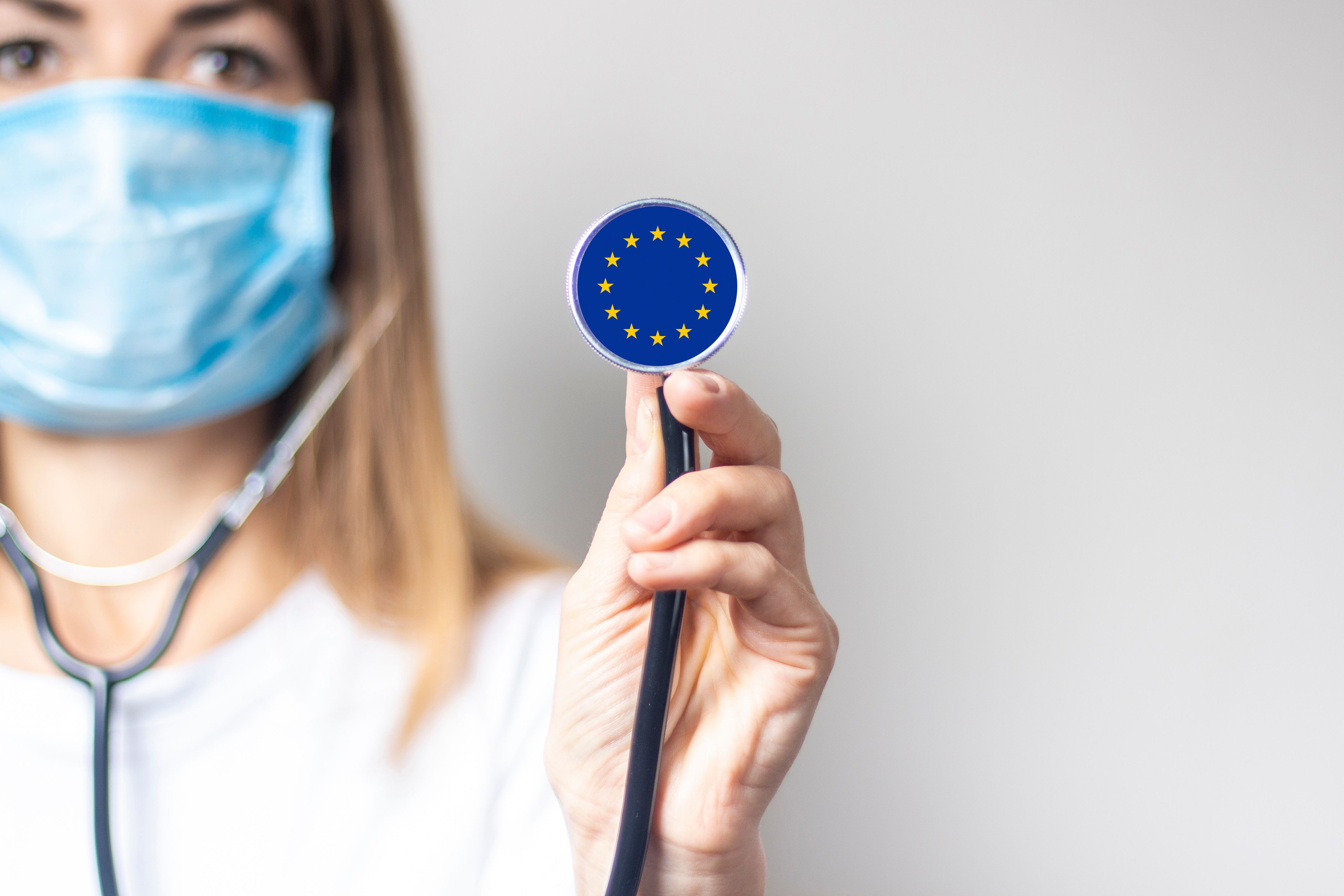- Bone Health
- Immunology
- Hematology
- Respiratory
- Dermatology
- Diabetes
- Gastroenterology
- Neurology
- Oncology
- Ophthalmology
- Rare Disease
- Rheumatology
Revolutionizing Biopharmaceuticals: The EU's Biosimilar Success and Remaining Challenges
The European Union's (EU) approach to biosimilars has revolutionized the biopharmaceutical market by driving innovation, lowering costs, and increasing adoption; however, there remains a need for more education, real-world evidence, and efforts to address challenges to enhance patient access and affordability.
Although the EU has had an established comprehensive regulatory framework since 2003, including guidelines on biosimilarity and interchangeability, significant barriers still hinder widespread biosimilar uptake. | Image credit: Alex - stock.adobe.com

The European Union's (EU) approach to biosimilars has revolutionized the biopharmaceutical market while driving innovation, lowering costs, and increasing biosimilar adoption. However, significant challenges remain, including gaps in education, concerns about the extrapolation of indications, and the need for robust real-world evidence to confirm long-term safety and efficacy, according to a recent review of European guidelines.1
The review, published in Cureus, was conducted to provide key insights for stakeholders, including policymakers, producers, medical professionals, and patients, by analyzing the EU biosimilar revolution.
“Ultimately, the EU's biosimilar resolution serves as a model for global adoption, demonstrating the potential for biosimilars to enhance patient access and affordability, drive innovation and competition, and optimize health care resource allocation. As the biosimilar landscape continues to evolve, the EU's approach will remain a guiding force, shaping the future of biologic treatments and improving patient lives,” the authors wrote.
Although the EU has had an established comprehensive regulatory framework since 2003, including guidelines on biosimilarity and interchangeability, significant barriers still hinder widespread biosimilar uptake. Resistance from originator companies, skepticism from health care professionals, and inconsistencies in patient access across member states reveal gaps in education, policy, and market dynamics. By evaluating the current state of these guidelines, this review aims to suggest improvements that can enhance biosimilar adoption, foster competition, and ensure affordable access to treatments.
Manufacturing biosimilars is more complex than producing chemically derived drugs due to the intricacies of biotechnology. Most biologics, including biosimilars, are made using advanced biological systems and recombinant DNA. The EU imposes strict regulations on biosimilar manufacturing, requiring manufacturers to obtain authorization and adhere to Good Manufacturing Practices (GMP). These regulations ensure biosimilars maintain high-quality standards. Manufacturing facilities undergo regular inspections to verify compliance with GMP criteria, including proper aseptic procedures and storage.
Biosimilars intended for use in specific therapeutic areas, such as oncology and immune disorders, require EU-wide approval through the European Medicines Agency’s (EMA) centralized process. Nearly all biosimilars approved in the EU follow this path, with a few exceptions for products like low–molecular weight heparins, which may receive national approval. The approval process involves rigorous evaluation of biosimilars' quality, safety, and efficacy, with the EMA working in collaboration with specialized committees. This evaluation culminates in a final decision from the European Commission, granting market authorization across the EU.
To approve biosimilars, comprehensive data on pharmaceutical quality, safety, and efficacy are required. The focus is on proving the biosimilar's similarity to the reference drug, which allows reliance on the reference product's safety and efficacy data. Ethical considerations play a crucial role in biosimilar trials, emphasizing informed consent and transparency regarding potential risks and benefits. Authors stressed that regulatory bodies should carefully balance safety with the need to make biosimilars accessible and affordable.
Biosimilarity is established by comparing the biosimilar with the reference biologic through detailed structural and functional analyses. EMA recommends a step-by-step approach to gather scientific evidence and address uncertainties regarding biosimilarity. Advanced analytical technologies, such as high-resolution mass spectrometry and biophysical characterization, enable precise evaluations of biosimilar candidates, ensuring they meet the required safety, efficacy, and quality standards.
In the EU, biosimilars approved by member states are often considered interchangeable, meaning that they can be exchanged for their reference agents safely. However, the approach to interchangeability varies by country. In some EU member states, automatic substitution is allowed, while others require medical approval. Physician and patient perceptions significantly influence the adoption of biosimilars, highlighting the need for education and trust building to foster acceptance.
The EMA and the UK’s Medicines and Healthcare products Regulatory Agency have both declared all biosimilars to be interchangeable with their reference products and other biosimilars of the same molecule.2,3 This contrasts heavily with the FDA, which has a special designation for biosimilars that qualify for interchangeability, usually pertaining to anti-vascular endothelial growth factor agents, insulin biosimilars, and pharmacy benefit biosimilars that have undergone switching studies. However, reviews have shown that reference product to biosimilar switching and biosimilar to biosimilar switching are both safe and do not impact clinical outcomes.4,5
Patient access to biosimilars in the EU depends on factors like regulatory policies, health care structures, and market dynamics. Biosimilars generally offer cost savings compared with reference biologics, improving affordability and accessibility. The authors emphasized that physician education and patient awareness will be key to increasing biosimilar acceptance and access, and efforts to standardize policies and address market challenges are essential to expanding biosimilar availability across the EU.
References
1. Gokul S, Kumar S, Kamaraj R. The Biosimilar revolution: assessing the European Union's approach to biosimilarity, interchangeability, patient access, and its market analysis. Cureus. 2024;16(8):e68103. doi:10.7759/cureus.68103
2. Statement on the scientific rationale supporting interchangeability of biosimilar medicines in the EU. EMA. April 21, 2023. Accessed October 15, 2024. https://www.ema.europa.eu/en/documents/public-statement/statement-scientific-rationale-supporting-interchangeability-biosimilar-medicines-eu_en.pdf
3. Guidance on the licensing of biosimilar products. Medicine & Healthcare products Regulatory Agency. Updated November 7, 2022. Accessed October 15, 2024. https://www.gov.uk/government/publications/guidance-on-the-licensing-of-biosimilar-products/guidance-on-the-licensing-of-biosimilar-products
4. Ferreri D. Analyzing safety of switching from originators to biosimilars: A meta-analysis of 21 trials. The Center for Biosimilars®. February 10, 2024. Accessed October 15, 2024. https://www.centerforbiosimilars.com/view/analyzing-safety-of-switching-from-originators-to-biosimilars-a-meta-analysis-of-21-trials
5. Jeremias S. New evidence confirms safe biosimilar-to-biosimilar switching. The Center for Biosimilars. May 28, 2024. Accessed October 15, 2024. https://www.centerforbiosimilars.com/view/new-evidence-confirms-safe-biosimilar-to-biosimilar-switching
Newsletter
Where clinical, regulatory, and economic perspectives converge—sign up for Center for Biosimilars® emails to get expert insights on emerging treatment paradigms, biosimilar policy, and real-world outcomes that shape patient care.
